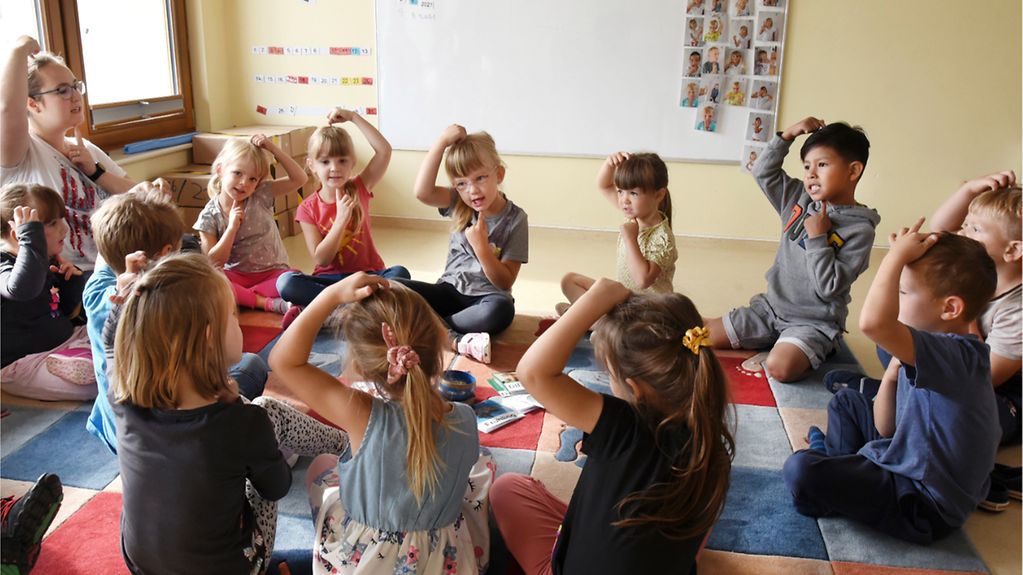Children’s Daycare Quality Act
More staff, high quality language support and more health and exercise programmes: the Federal Cabinet has passed the Children’s Daycare Quality Act. In order to improve the quality of children’s daycare, the Federal Government will provide four billion euros for the Länder over the next two years.
3 min reading time

The new legislation seeks to create more equal opportunities for all children by improving the quality of early childhood education.
Photo: picture alliance/dpa/dpa-Zentralbild
Quality early childhood care lays the crucial foundations for a successful education. For this reason, the Federal Government is seeking to achieve targeted improvements in the quality of children’s daycare.
“All children in Germany should have access to good early childhood education – no matter where they live, and no matter whether their parents are wealthy or poor. This is why we are investing four billion euros in the quality of children’s daycare and early childhood education in the next two years alone,” said Federal Minister for Family Affairs Lisa Paus after the Federal Cabinet passed the Children’s Daycare Quality Act.
The new legislation includes the following:
- Since the Länder are responsible for childcare, support is to be provided for them to improve the staffing situation at children’s daycare centres. The aim is to improve the teacher-child ratio, recruit new nursery teachers and strengthen the management of childcare facilities.
- At the same time, investments are to be made in needs-based services and in language education so as to address the outstanding importance of children’s language development.
- The status of childminding is also to be boosted as an equivalent to attendance at a daycare centre.
- Furthermore, as a consequence of the pandemic, greater importance is to be attached to measures to promote development, health, nutrition and exercise. Various studies have found that the pandemic has had a significant impact on children, such as causing an increase in special needs as well as a greater frequency of mental and physical disorders.
- Another goal is to facilitate social participation in daycare for all children in Germany. In future, therefore, fees are to be charged based on a mandatory nationwide scale according to the parents’ income, the number of children entitled to child benefit in the family and the time required for childcare in each individual case. An analysis indicates that only about one third of municipalities based their fees based on an income scale.
- The Länder are essentially to be able to continue to apply relief measures as implemented since 2019 under the Good Childcare Act. However, new measures to reduce fees are no longer to be financed from Federal Government funds in the future . The aim here is to reduce competing budgetary pressures between increasing participation and improving quality.
Four billion euros for 2023 and 2024
As early as 2019, a law on the “further development of quality and participation in children’s daycare” came into force, the so-called Good Childcare Act. This law is now to be carried forward and developed further, based on the recommendations derived from an impact assessment.
The Federal Government aims to provide a total of 4 billion euros for the Länder in 2023 and 2024 to finance the measures under the new Children’s Daycare Quality Act.
Goal: legislation on the development of quality in childcare with nationwide standards
By the end of the legislative period, the Federal Government intends to take a further step in developing the new Children’s Daycare Quality Act – as agreed on in the coalition agreement – to establish legislation on quality development based on nationwide standards.
In this way, the Federal Government is making an important contribution to creating equal opportunities for all children by improving the quality of early childhood education and making it easier to reconcile family life and work.